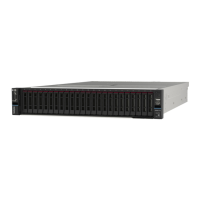Table 28. Independent mode with one processor (continued)
8 DIMMs
1,2
16 14 12 10 7 5 3 1
12 DIMMs
1
16 14 13 12 10 9 8 7 5 4 3 1
16
DIMMs
1,2,3
16 15 14 13 12 11 10 9 8 7 6 5 4 3 2 1
Notes:
1. DIMM configurations that support Sub NUMA Clustering (SNC), which can be enabled via UEFI. SNC is
not supported if DIMM population does not follow the sequence indicated by the table above.
2. DIMM configurations that support Software Guard Extensions (SGX). See
“Enable Software Guard
Extensions (SGX)” on page 437
to enable this feature.
3. Rank mixing is supported between single-rank and dual-rank RDIMMs, or between quad-rank and octal-
rank 3DS RDIMMs when there are 16 DIMMs populated for each processor. See
“Independent mode
with mixing rank” on page 60
for more information on the installation sequence when installing memory
modules with different ranks.
The following table shows the sequence of populating memory modules for independent mode when two
processors (processor 1 and processor 2) are installed.
Table 29. Independent mode with two processors
Total
DIMMs
Processor 1
16 15 14 13 12 11 10 9 8 7 6 5 4 3 2 1
2 DIMMs
7
4 DIMMs
1
14 7
8 DIMMs
1
14 10 7 3
12 DIMMs
1
14 12 10 7 3 1
16
DIMMs
1,2
16 14 12 10 7 5 3 1
24 DIMMs
1
16 14 13 12 10 9 8 7 5 4 3 1
32
DIMMs
1,2,3
16 15 14 13 12 11 10 9 8 7 6 5 4 3 2 1
Total
DIMMs
Processor 2
32 31 30 29 28 27 26 25 24 23 22 21 20 19 18 17
2 DIMMs 23
4 DIMMs
1
30 23
8 DIMMs
1
30 26 23 19
12 DIMMs
1
30 28 26 23 19 17
16
DIMMs
1,2
32 30 28 26 23 21 19 17
24 DIMMs
1
32 30 29 28 26 25 24 23 21 20 19 17
32
DIMMs
1,2,3
32 31 30 29 28 27 26 25 24 23 22 21 20 19 18 17
Notes:
Chapter 5. Hardware replacement procedures 59

